July 3, 2014 •
Canada Lobbyist Registration System to be Updated
The Office of the Commissioner of Lobbying is set to enhance the lobbyist registration system following website maintenance on July 5, 2014. The system updates will provide lobbyists with a late notification when monthly communication reports are not filed on […]
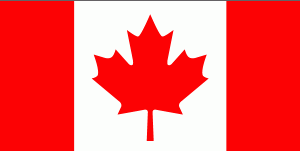 The Office of the Commissioner of Lobbying is set to enhance the lobbyist registration system following website maintenance on July 5, 2014. The system updates will provide lobbyists with a late notification when monthly communication reports are not filed on time.
The Office of the Commissioner of Lobbying is set to enhance the lobbyist registration system following website maintenance on July 5, 2014. The system updates will provide lobbyists with a late notification when monthly communication reports are not filed on time.
In addition, the system will make reporting easier by excluding government institutions without a designated public office holder.
Previous website updates have included a flowchart to help lobbyists determine if they need to register and a page with frequently asked questions regarding definitions and registration requirements.
The Registry of Lobbyists is available at https://ocl-cal.gc.ca/eic/site/012.nsf/eng/h_00000.html.
Photo of Canadian flag by Djameson1983 on Wikimedia Commons.
June 25, 2014 •
Canada Fair Elections Act Receives Royal Assent
The Fair Elections Act to amend the Canada Elections Act has passed and received Royal Assent on June 19, 2014. Bill C-23 increases contribution limits to candidates and political parties from $1,200 to $1,500. Third-party advertising limits, currently imposed only […]
 The Fair Elections Act to amend the Canada Elections Act has passed and received Royal Assent on June 19, 2014. Bill C-23 increases contribution limits to candidates and political parties from $1,200 to $1,500.
The Fair Elections Act to amend the Canada Elections Act has passed and received Royal Assent on June 19, 2014. Bill C-23 increases contribution limits to candidates and political parties from $1,200 to $1,500.
Third-party advertising limits, currently imposed only during a campaign period, will be imposed for all election advertising “in relation to a general election.”
The bill also increases penalties to $100,000 for intentional violations by corporations acting as a third party. The new limits are not effective until the next call for a general election at the federal level.
June 12, 2014 •
Toronto Appoints New Integrity Commissioner
On June 11, the Toronto, Canada City Council appointed Valerie L. Jepson as the city’s new integrity commissioner. According to the city’s press release, Jepson was counsel for the Office of the Ontario Integrity Commissioner since 2007. Jepson replaces Janet […]
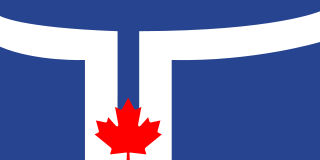 On June 11, the Toronto, Canada City Council appointed Valerie L. Jepson as the city’s new integrity commissioner. According to the city’s press release, Jepson was counsel for the Office of the Ontario Integrity Commissioner since 2007. Jepson replaces Janet Leiper, the commissioner since 1999.
On June 11, the Toronto, Canada City Council appointed Valerie L. Jepson as the city’s new integrity commissioner. According to the city’s press release, Jepson was counsel for the Office of the Ontario Integrity Commissioner since 2007. Jepson replaces Janet Leiper, the commissioner since 1999.
May 30, 2014 •
Legislative Assembly of British Columbia Adjourns
On May 29, the second session of the 40th parliament of the Legislative Assembly of British Columbia adjourned for the summer. It is scheduled to reconvene on October 6, 2014, and to adjourn on November 27, 2014. Two campaign finance […]
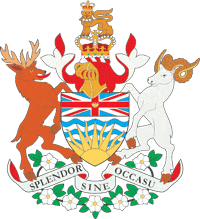 On May 29, the second session of the 40th parliament of the Legislative Assembly of British Columbia adjourned for the summer. It is scheduled to reconvene on October 6, 2014, and to adjourn on November 27, 2014.
On May 29, the second session of the 40th parliament of the Legislative Assembly of British Columbia adjourned for the summer. It is scheduled to reconvene on October 6, 2014, and to adjourn on November 27, 2014.
Two campaign finance bills affecting local elections in the province were passed during the session. Bill No. 20, the Local Elections Campaign Financing Act, and Bill No. 21, Local Elections Statutes Amendment Act, 2014 require, among other changes, third party advertising sponsors to register with Elections B.C., report expenditures and contributions of $50 or more, and clearly identify themselves in any election advertisement. Both bills received royal assent on May 29.
May 22, 2014 •
New Brunswick Passes Lobbyists’ Registration Act
The day before scheduled adjournment, New Brunswick’s Legislative Assembly approved the Lobbyists’ Registration Act, establishing a lobbyist registry for the province. The Act establishes a registrar of lobbyists and outlines requirements for registration by consultant and in-house lobbyists. The province […]
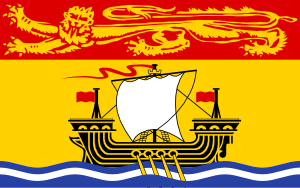 The day before scheduled adjournment, New Brunswick’s Legislative Assembly approved the Lobbyists’ Registration Act, establishing a lobbyist registry for the province.
The day before scheduled adjournment, New Brunswick’s Legislative Assembly approved the Lobbyists’ Registration Act, establishing a lobbyist registry for the province.
The Act establishes a registrar of lobbyists and outlines requirements for registration by consultant and in-house lobbyists.
The province attempted to create a registry a number of times over the last several years, but failed because of financial concerns and technical complications.
May 22, 2014 •
Canada Lobbying Commissioner Reports on Public Feedback
Commissioner of Lobbying Karen Shepherd intends to revise the Lobbyists’ Code of Conduct following a period of public consultation launched in September 2013. The consultation offered participants the chance to submit suggestions for improvement by writing and by roundtable discussion. […]
 Commissioner of Lobbying Karen Shepherd intends to revise the Lobbyists’ Code of Conduct following a period of public consultation launched in September 2013.
Commissioner of Lobbying Karen Shepherd intends to revise the Lobbyists’ Code of Conduct following a period of public consultation launched in September 2013.
The consultation offered participants the chance to submit suggestions for improvement by writing and by roundtable discussion. Suggestions included deregulation of lobbyist-client interactions and more clarity in the gift law.
Shepherd has produced a report on the consultation available here.
May 21, 2014 •
Yukon Assembly Adjourns
The first session of the 33rd Yukon Legislative Assembly, which convened on March 25, adjourned on May 15, 2014. The Legislative Assembly is scheduled to reconvene later this year. The session dates will be announced two weeks before the session […]
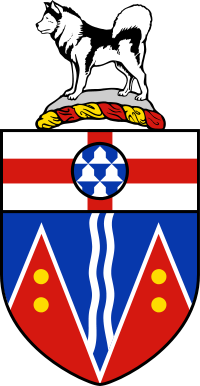 The first session of the 33rd Yukon Legislative Assembly, which convened on March 25, adjourned on May 15, 2014.
The first session of the 33rd Yukon Legislative Assembly, which convened on March 25, adjourned on May 15, 2014.
The Legislative Assembly is scheduled to reconvene later this year.
The session dates will be announced two weeks before the session begins.
May 7, 2014 •
Ontario Elections to be Held June 12
Today the Chief Electoral Officer for Ontario, Canada, Greg Essensa, announced the province will hold general elections on June 12, 2014. According to the Elections Ontario’s press release, the candidate nomination period runs from May 15 to May 22. The […]

Today the Chief Electoral Officer for Ontario, Canada, Greg Essensa, announced the province will hold general elections on June 12, 2014. According to the Elections Ontario’s press release, the candidate nomination period runs from May 15 to May 22. The two blackout periods on political advertising run from May 7 to May 20 and June 10 to Election Day.
The last provincial general election was held on October 6, 2011.
May 7, 2014 •
Bills Concerning Campaign Finances for Local Elections Pass British Columbia Legislative Assembly
Two campaign finance bills affecting local elections in British Columbia were passed last week by the Legislative Assembly. On May 1, Bill No. 20, the Local Elections Campaign Financing Act, and Bill No. 21, Local Elections Statutes Amendment Act, 2014, […]

Two campaign finance bills affecting local elections in British Columbia were passed last week by the Legislative Assembly.
On May 1, Bill No. 20, the Local Elections Campaign Financing Act, and Bill No. 21, Local Elections Statutes Amendment Act, 2014, were passed after the third readings. The new laws will require, among other changes, third party advertising sponsors to register with Election B.C., report expenditures and contributions of $50 or more, and clearly identify themselves in any election advertisement.
The legislation will become effective after royal assent.
Photo of the British Columbia Legislative Assembly building courtesy of KirinX on Wikimedia Commons.
April 28, 2014 •
Lobbying Bill Introduced in Yukon Legislative Assembly
A new bill introduced in the Yukon 33rd Legislative Assembly would create a lobbying law for the territory. Introduced on April 9 by MLA Liz Hanson, Leader of the Opposition New Democratic Party, the proposed legislation creates a registrar position […]

A new bill introduced in the Yukon 33rd Legislative Assembly would create a lobbying law for the territory.
Introduced on April 9 by MLA Liz Hanson, Leader of the Opposition New Democratic Party, the proposed legislation creates a registrar position to establish and maintain the lobbyist registry. Bill 104 mandates a consultant lobbyist must file the first return within 10 days of an undertaking. An in-house lobbyist must file his or her first return within 60 days after becoming an in-house lobbyist. Subsequent returns must be filed biannually.
The bill also creates a cooling off period before former public officials could lobby the government.
A British Columbia Supreme Court judge has ruled the province’s law requiring registration for political advertising is constitutional, even if no money on advertising has been spent. The Election Act requires individuals and organizations wanting to sponsor election advertising to […]

A British Columbia Supreme Court judge has ruled the province’s law requiring registration for political advertising is constitutional, even if no money on advertising has been spent.
The Election Act requires individuals and organizations wanting to sponsor election advertising to register with the province’s chief electoral officer. According to The Globe and Mail, Judge Bruce Cohen wrote, “The salutary effects of the impugned measure outweigh the deleterious effects [by increasing] the transparency, openness and accountability of B.C.’s electoral process and promotes an informed electorate.” The B.C. Freedom of Information and Privacy Association had argued the law discourages participation from individuals and groups without the means or ability to register.
On April 9, the Ontario, Canada Legislative Assembly held a second reading of Bill 179, which would amend the province’s Lobbyists Registration Act. The bill, introduced on March 24, redefines “in-house lobbyist” to include paid directors as well as employees […]
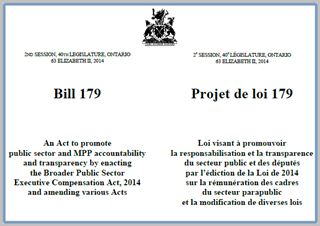
On April 9, the Ontario, Canada Legislative Assembly held a second reading of Bill 179, which would amend the province’s Lobbyists Registration Act.
The bill, introduced on March 24, redefines “in-house lobbyist” to include paid directors as well as employees and paid directors whose lobbying duties, when combined with those of the employer’s other employees and paid directors, would constitute a significant part of the duties of one employee or director.
The bill requires a single filing of returns by the senior officer of the employer instead of requiring in-house lobbyists themselves to file returns.
Additional amendments to the filing procedures include requiring returns to indicate whether the lobbyist was previously in public office, what the goal of the reported lobbying was, and to provide the name of any minister, member, or member of the minister’s or member’s staff who was lobbied.
The bill also increases penalties for convictions of any offense from a maximum fine of $25,000 to a maximum fine of $25,000 for a first offense and a maximum fine of $100,000 for subsequent offenses.
April 8, 2014 •
Liberals Win Majority in Quebec Election
A special election was held in Quebec on April 7, resulting in a new majority government. Premier Pauline Marois, leader of the Parti Quebecois, called the election hoping her party would garner a majority of seats within the National Assembly. […]

A special election was held in Quebec on April 7, resulting in a new majority government.
Premier Pauline Marois, leader of the Parti Quebecois, called the election hoping her party would garner a majority of seats within the National Assembly. However, the Liberals took 70 of the 125 seats, giving them a majority of seats in the legislature.
Marois lost her own seat in the Charlevoix-Cote-de-Beaupre riding, causing her to step down as the leader of the Parti Quebecois. Liberal Leader Phillipe Couillard will become the new Premier of Quebec.
April 3, 2014 •
Saskatchewan Passes Lobbyists Act
After more than two years of debate, the Legislative Assembly of Saskatchewan passed a bill containing a lobbyist registration scheme. Under the new law, lobbyists, as defined therein, must register and file activity reports online. There are several notable provisions […]

After more than two years of debate, the Legislative Assembly of Saskatchewan passed a bill containing a lobbyist registration scheme. Under the new law, lobbyists, as defined therein, must register and file activity reports online.
There are several notable provisions excepting some individuals from the registration requirement, including officers, directors, or employees, when acting in their official capacity, of the Saskatchewan Urban Municipalities Association, the Saskatchewan Association of of Rural Municipalities, and the Saskatchewan School Boards Association. The bill also contains revolving door restrictions, prohibiting former public officials from lobbying within one year of leaving office.
The act becomes effective upon proclamation by the Lieutenant Governor. Justice Minister Gordon Wyant estimates no such proclamation will be issued for at least nine months, as the province must still develop protocols to administer and enforce the new law.
State and Federal Communications, Inc. provides research and consulting services for government relations professionals on lobbying laws, procurement lobbying laws, political contribution laws in the United States and Canada. Learn more by visiting stateandfed.com.


